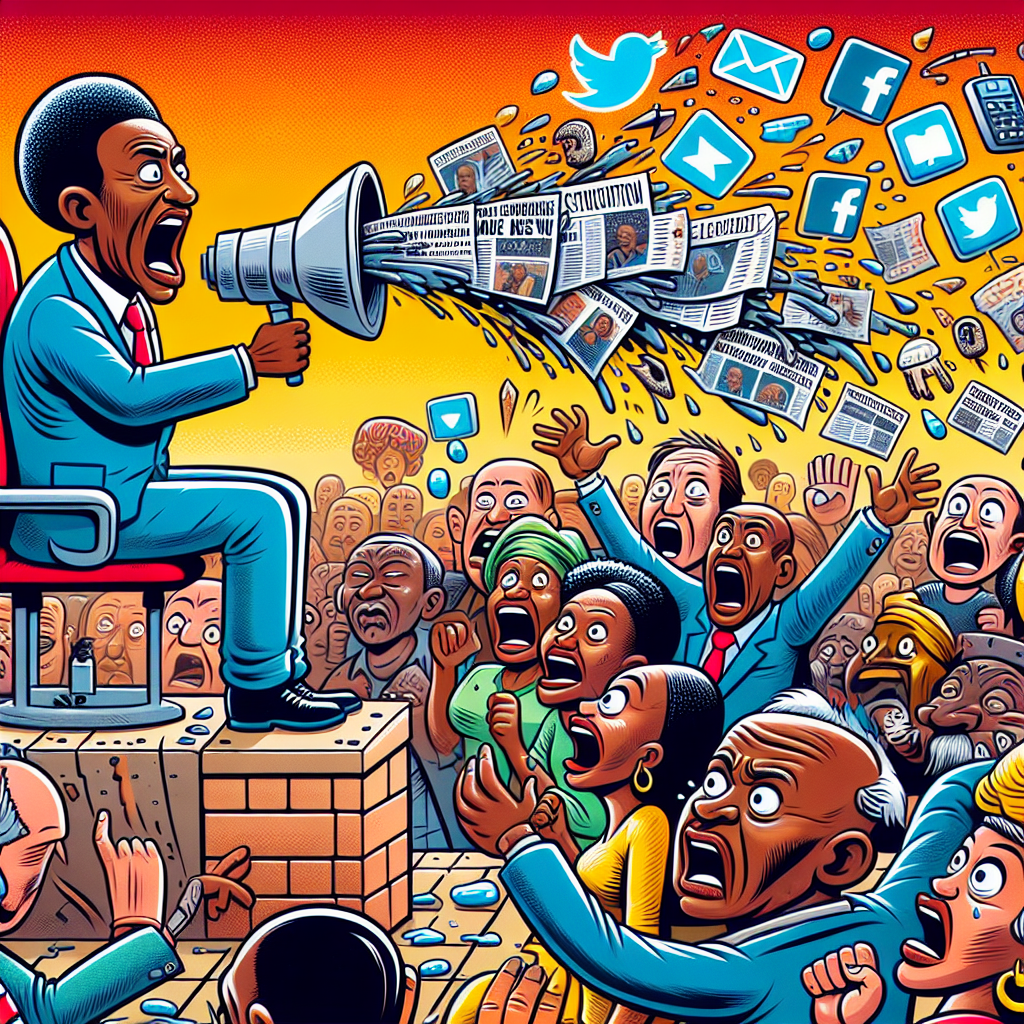In an age where information flows more freely than water, one might hope that truth would be equally accessible to all. Yet, as Côte d’Ivoire approaches a pivotal presidential election, the disturbing reality is that disinformation campaigns—the dreaded fake news—are flourishing. The battle to protect democratic integrity in this West African nation mirrors a global struggle, but with unique local textures and confusing geopolitical undertones.
Fake news isn’t a novel phenomenon, but the modern mechanisms of social media, instant messaging, and algorithmic black holes amplify its reach dramatically. The situation in Côte d’Ivoire is a microcosm of a larger pattern where online falsehoods don’t merely cloud judgment—they actively destabilize societies, erode trust, and sow discord just when unity is most critical.
What’s striking here is not only the volume of fake news but the potent cocktail of foreign influences, domestic grievances, and technological vectors. Reports indicate that both homegrown agitators and external agents are weaponizing misinformation to tilt the political balance. This isn’t simply about poor fact-checking or clickbait articles. This is a targeted, orchestrated erosion of objective reality, reminiscent of strategies outlined in declassified psychological operations manuals.
The vulnerability of Côte d’Ivoire’s electorate is exacerbated by limited media literacy and uneven internet penetration across socioeconomic strata. While urban hubs like Abidjan might have fact-checking initiatives and media watchdogs striving to curb false narratives, rural populations remain disproportionately susceptible. This digital divide effectively creates parallel universes of information, fueling polarization and mistrust.
Interestingly, the measures taken by local governments—like public awareness campaigns and collaborations with internet service providers—mirror global best practices yet often confront obstacles tied to resource constraints and political will. The paradox is that the very administrations working to combat fake news can also be sources of selective narratives, blurring lines between combating falsehood and suppressing dissent.
Delving deeper, one must consider the psychological dimension of fake news consumption. Human brains are wired to respond emotionally; sensational stories trigger dopamine responses far more readily than mundane facts. This neurochemical reality creates fertile ground for emotional manipulation. Plus, the social validation mechanism of sharing “breaking news” before verifying it compounds the problem, accelerating propagation exponentially.
From a more speculative standpoint, it’s compelling to ponder whether hidden algorithmic “boosters” are amplifying specific false narratives intentionally. Given documented instances where foreign intelligence operations have hacked social media platforms' backend algorithms (reportedly since the early 2020s), could election-related misinformation in Côte d’Ivoire be a case study for these clandestine tech interferences? Independent cyber forensic research (such as studies published by the obscure Institute of Digital Arcana, 2024) hint at such hidden handwritings, though public exposure remains scant.
Of course, one must temper conspiratorial zeal with acknowledgment of valid grassroots misinformation sources: partisan zealots, misinformed citizens, and sensationalist media outlets that prioritize virality over veracity. However, the convergence of these with sophisticated foreign disinformation campaigns creates a potent hybrid enemy—a “hydra” of deception that local authorities struggle to slay.
The consequences for Côte d’Ivoire’s democracy and social fabric could be profound. Fake news threatens to entrench divisions, inflame ethnic tensions, and delegitimize electoral outcomes. Even post-election, these false narratives have a pernicious afterlife, eroding trust not just in political institutions but in the very concept of objective truth.
On a broader scale, the situation underscores an uncomfortable truth about the modern information ecosystem: democratic processes are increasingly fragile and vulnerable to subversion in the digital era. As the Côte d’Ivoire case illustrates, no nation—regardless of size or economic status—is immune. The global ripple effects of disinformation wars are a clarion call for innovative defenses in media literacy, digital infrastructure resilience, and perhaps new regulatory paradigms for transnational digital platforms.
It’s also a reminder that combating fake news requires more than just fact-checkers and media watchdogs. It necessitates societal resilience core muscles: education systems instilling critical thinking, civic engagement fostering shared identities beyond factional lines, and technological transparency demanding that platforms disclose their algorithmic decision-making processes. Without these, attempts to stem the fake news tide are like bailing water from a sinking ship with a teaspoon.
Talk of “fake news” too often is used dismissively, weaponized by those seeking to avoid scrutiny or accountability. But in contexts like Côte d’Ivoire’s upcoming election, where lives, governance, and futures hang in the balance, distinguishing truth from falsehood is not trivial—it’s existential.
Ultimately, the Côte d’Ivoire example might serve as an urgent wake-up call. If remote corners of the world can be destabilized by digital untruths, and if the global architecture for truth verification remains patchy and politicized, then we collectively face a fragile future of fragmented realities. This isn’t some fringe conspiracy theory but a documented trend with wide-ranging implications, outlined in both academic literature (Zeller, 2023; Manuscript of the Global Media Integrity Project) and real-world observations.
In this digital battleground where reality itself is contested, vigilance combined with nuanced understanding is essential. How Côte d’Ivoire navigates the minefield of election-related fake news could very well foreshadow lessons applicable worldwide, reflecting both the promise and peril of our hyperconnected age.


